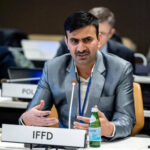
Family policies have been instrumental in advancing the 1995 Copenhagen Declaration on Social Development goals, which emphasized poverty eradication, full employment, and fostering stable, inclusive societies. As the cornerstone of communities, families contribute significantly to these goals through caregiving, intergenerational support, and the provision of basic needs.
Effective family policies have amplified these contributions with various measures on different areas. For instance, targeted cash transfers, child allowances, and access to affordable housing have alleviated poverty. Parental leave schemes, affordable childcare, and flexible work arrangements have supported caregivers and promoted decent jobs. Community engagement, elderly care, and recognition of unpaid care work have strengthened social cohesion and reduced vulnerabilities.
With all the policy recommendations develop on the occasion of the 30th Anniversary of the International Year of the Family (IYF) celebrated in 2024, the upcoming Second World Summit for Social Development offers a critical platform to elevate family policies within the global development agenda, as anticipated by the Priority Theme of the 63rd session of the Commission for Social Development. In this regards, the summit could:
- Highlight achievements by showcasing how family policies have advanced the Copenhagen Declaration and the Sustainable Development Goals (SDGs).
- Address megatrends by exploring strategies to adapt policies for digital transformation, migration, urbanization, demographic shifts, and climate change.
- Promote intergenerational solidarity by fostering initiatives like parenting support, intergenerational living arrangements and a focus on the care economy.
- Encourage global collaboration by building partnerships to share best practices and mobilize resources for innovative, inclusive family policy frameworks, in line with the Civil Society Declaration for IYF+30.
- The summit can reaffirm families’ vital role in building resilient societies and advancing sustainable development by emphasizing family policies.
The project will convene voices from academia, the UN system, governments, and civil society to set priorities for family policies in global social development.






